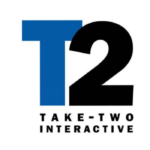When you make calls to poach a candidate, just remember, you are not selling credit cards, you are in the business, which is lot more significant and life-changing.
“Hi, I am Shruti calling from XYZ software. Are you looking for a change?”
Such calls are quite common in the recruitment business. Half the time the recipient is not even listening or is clearly fed up of such calls or chats.
Are you a recruiter making cold calls to fetch a pool of candidates?
Then here is a story for you.
After an escalation with the client the previous night, Sameer, a project manager, started for work at 9.30 am, mapping the list of tasks for his team for the day. While driving, he received a call from a recruiter who started off in her monotonous mechanical pitch. Out of courtesy, Sameer heard her out, but even before he could respond, she went on to the next sentence—“What is your current CTC, expected CTC, notice period/joining time?”
Sameer cannot decide his career move in a picosecond for the caller, can he? It is not possible for him to make a life-changing decision so fast, merely because she has a target to meet, right? Is he to consider a job change, just out of the blue, simply because she has to deliver a certain number of CVs? Absolutely not.
Naturally, Sameer, whose mind is preoccupied with other important things, asked her to drop a mail and ended that cold call. After that, he neither responded to her call or her e-mails!
You really believe a person would respond to your call out of over 20 calls he receives in a day?
As a recruitment professional, if you have faced similar situations, it is time for you to realise that the days of cold calling are long over.
Here are a few suggestions that can be helpful for a recruiter:
1. Pre-screen resumes: As a recruiter, you must go through the resume copy of a candidate with great care. No matter how much the pressure of deliveries is, a stitch in time saves nine. Doing a Ctrl+ F to find the best fit in search strings is not screening.
2. Combine speed and accuracy: Though you wish to rush to the candidate and initiate the process, you must ensure that you are accurately reading the contour of the career.
3. Probe rigorously: You will have questions to ask when you really screen a profile. You may also want to cross-check the information provided on the job boards. Probe with an eagle eye without appearing as an investigator.
4. Avoid extending calls: Yes, you have called him to get the maximum possible information. But this does not mean that you extend the conversation unnecessarily. Take notes so that you do not repeat the questions.
5. Be ethical: Some recruiters tend to tweak the details of the candidates just to survive that moment of high pressure. However, this is just a temporary adjustment. One will get caught sooner or later. As a recruiter, you should refrain from doing this and also check your candidates from doing it. Educate them about the adverse effects, of such tweaking, on their careers.
6. Be humane: Some recruiters are robots who speak the language they have heard their peers speak or learnt during training. Remember, every individual is different. You have to understand the psyche of each person and talk sense. Use fillers or phrases like “if I may ask” before/after discussing compensation details or “in the meantime” instead of silent pauses, while jotting down the information. This will help you build a relation. The other side should not know that there is an excel doc open at your end. Take the details in an interactive way, not monotonously. Talk humanly.
7. Introduce yourself: The candidate is not your acquaintance or friend who knows you by your name. So, it is important to introduce yourself properly. Share the details of the position you are offering with utmost clarity. Don’t jump onto the job details unless you receive a confirmation from the listener.
8. Do your homework: Read the skill set required and understand the basics. The profile has behavioural attributes that are implicit, and should be gauged beforehand. For instance, every software engineer is not a development professional. So, if you ask a candidate whether he is an ‘ABC developer’, you may be sarcastically asked to go through the job description again because ‘ABC’ is a testing tool and has nothing to do with development!
9. Do it right the first time and always: When you call your prospect to take the required information, ensure that you fill in all your fields. Do not wait for a hint from your lead or peer when they recheck and then run to make the second or third call. Even if it is your nth call, do it right.
10. Keep a cool head: A lot of times candidates turn arrogant during the very first call. This could be because of their bitter experience with your organisation in the past. Don’t be tempted to give it back to them. Stay calm. Tell yourself that the response is to some process failure or that it is his perception from the experience he may have had. He never meant to demean you personally. Try changing his negative perception into a new and positive one.
11. Be focussed and energetic: It may have been a tiring day, and you may have made several throat-choking calls. But even when you dial the last number for the evening, do not vent out your stress on the candidate who asks you the same old questions. Remember, it is his first call. So make sure you make his day by sounding bright, energetic and focussed.
12. Upgrade: Stay updated with the latest changes in technologies/skills that you are hiring for. Talking to people in their language can be very helpful. It gives them the feeling that you are one of them and not someone alien to their field of work. People confide in those who they think will understand them correctly. Therefore, by talking their language, you will deliver nothing less than quality profiles.
13. Scale your conversation: ‘One size fits’ does not hold true for recruitments. You have to pitch a fresher, mid -level and a senior in three different ways. But this does not mean you give all respect to a senior professional and none to a fresher. You cannot talk to a mid-level professional confidently and just nod in agreement to whatever a senior-level person says. Take a few seconds to decide the path of the call to be made.
14. Respect your job: Recruitment is considered to be casual chit-chatting by that other world of candidates or hiring managers, as they have mostly witnessed them calling and coordinating. Do not belittle yourself. Instead, take pride in your work. Invest in research on your mandates. Take interest in understanding the industry and its scope, market mapping, and competitor analysis. Make learning your objective.
People are the key resources of any organisation. So, congratulate yourself on being a career maker. Your job is lot more significant and ‘life-changing’ than merely selling credit cards at a call centre!
These are few things that if practiced rightly, can drastically improve the rate of submissions getting shortlisted. Hiring would definitely be made easy with warm calls. ‘Hard-smart’ work always pays!
Value our content... contribute towards our growth. Even a small contribution a month would be of great help for us.
Since eight years, we have been serving the industry through daily news and stories. Our content is free for all and we plan to keep it that way.
Support HRKatha. Pay Here (All it takes is a minute)




































